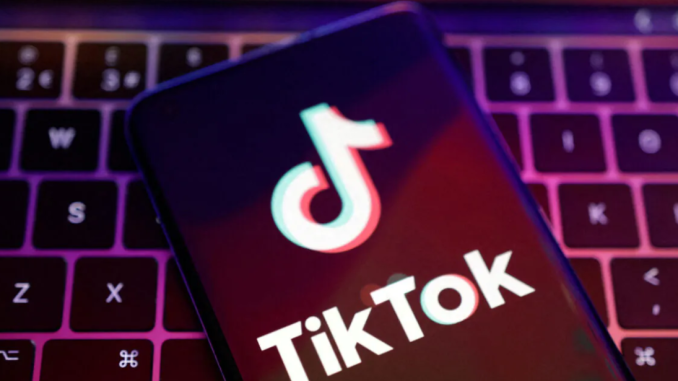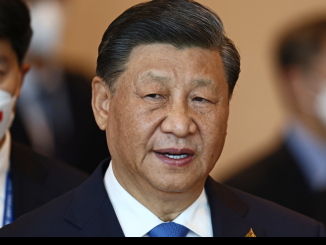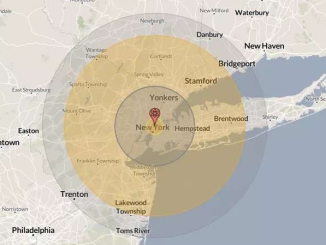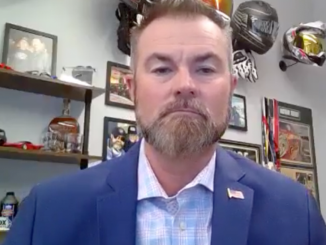
TikTok has admitted to storing some U.S. user data on China-based servers, which differs from its CEO’s previous testimony to Congress that “American data stored on American soil.”
The Chinese video-sharing platform confirmed this in a letter dated June 16 made in response to questions raised by Sens. Richard Blumenthal (D-Conn) and Marsha Blackburn (R-Tenn) to TikTok CEO Shou Zi Chew.
The senators had accused TikTok of making misleading claims to Congress regarding its storage of U.S. user data, citing a Forbes report that TikTok stored financial information—such as social security numbers and tax IDs—of U.S. content creators on Chinese servers.
In response, TikTok said that its previous testimony specifically pertained to the protected user data collected within the app and was not related to content creators’ data, which it said falls into two different categories.
“The Forbes reporter conflated two categories of data, and we stand by the statements made by our company executives to Congress,” it stated. “We are asked about, and our testimony focused on, the protected user data collected in the app—not creator data.”
The company clarified that there are “limited exceptions to the definition of protected data.”
These exceptions include “public data, business metrics, interoperability data, and certain creator data, if a creator voluntarily signs up for a commercial program to be supported by TikTok in reaching new audiences and monetizing content.”
“TikTok believes that the Forbes article cited in your letter was referencing certain creator data such as signed contracts and related documents for U.S. creators who enter into a commercial relationship with TikTok—information that is collected outside of the standard app experience,” it stated.
Regarding the potential sharing of U.S. user data stored in China with the Chinese Communist Party (CCP) regime under China’s National Intelligence Law, TikTok said that it had not been asked by the CCP to provide such data.
TikTok said it has not been asked for U.S. user data by the Chinese regime, adding that TikTok has not provided such data to the regime, nor would TikTok do so the company said.
‘Misleading Public Relations Campaign’…
However, the senators maintained their stance and said that TikTok’s response showed that its executives had repeatedly provided misleading information to Congress regarding the storage of U.S. user data.
“It’s deeply alarming that TikTok execs have repeatedly [and] intentionally misled Congress on this fundamental issue,” Blumenthal stated on Twitter.
Meanwhile, Blackburn said that it is “extremely concerning” that TikTok stores the personal data of users from the United States within the reach of the CCP regime.
“TikTok’s response makes it crystal clear that Americans’ data is still exposed to Beijing’s draconian and pervasive spying regimes—despite the claims of TikTok’s misleading public relations campaign,” she said in a statement.
TikTok, owned by Beijing-based ByteDance, has come under increased scrutiny in Washington due to national security concerns and the potential that U.S. users’ data could land in the hands of the CCP, with many lawmakers advocating for a nationwide ban on the app.
In March, Chew appeared before a congressional hearing to answer questions regarding concerns over TikTok—which has soared in popularity and is used by more than 100 million Americans—and its possible links to Beijing, as well as its effect on children.
Chew told lawmakers that the app has been working for years to build “what amounts to a firewall to seal off protected U.S. user data from unauthorized foreign access” and that user data are “stored on American soil, by an American company, overseen by American personnel.”
He added that TikTok doesn’t work with or for the Chinese regime and doesn’t spy on users. However, those reassurances appear to have done little to ease Washington’s concerns.
TikTok Code Worked on From China…
A code sample seen by the Australian Financial Review earlier this month shows that engineers at TikTok’s Chinese parent company, ByteDance, are linked to the software development.
Code samples correlated with the version of the popular video-sharing app used on Android devices show that at least a dozen email addresses with usernames were associated with ByteDance.
James Paterson, shadow minister for home affairs and cyber security in Australia, argued that the code sample is more evidence that TikTok is made and managed in China, meaning that Beijing can access data of the app used by over one billion people worldwide.
TikTok could be compelled at any time to hand that data over to the Chinese regime or make changes to the algorithm to please the CCP, Paterson said, adding that “we would never know about it because they would be required to keep it all a secret.”
* Article From: The Epoch Times


